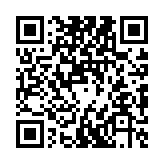try
Syntax
Returns
The try statement is a non-standard extension to Go’s text/template package. It introduces a mechanism for handling errors within templates, mimicking the try-catch constructs found in other programming languages.
Methods
The TryValue object encapsulates the result of evaluating the expression, and provides two methods:
Err
(string) Returns a string representation of the error thrown by the expression, if an error occurred, or returns nil if the expression evaluated without errors.
Value
(any) Returns the result of the expression if the evaluation was successful, or returns nil if an error occurred while evaluating the expression.
Explanation
By way of example, let’s divide a number by zero:
{{ $x := 1 }}
{{ $y := 0 }}
{{ $result := div $x $y }}
{{ printf "%v divided by %v equals %v" $x $y .Value }}As expected, the example above throws an error and fails the build:
Error: error calling div: can't divide the value by 0Instead of failing the build, we can catch the error and emit a warning:
{{ $x := 1 }}
{{ $y := 0 }}
{{ with try (div $x $y) }}
{{ with .Err }}
{{ warnf "%s" . }}
{{ else }}
{{ printf "%v divided by %v equals %v" $x $y .Value }}
{{ end }}
{{ end }}The error thrown by the expression is logged to the console as a warning:
WARN error calling div: can't divide the value by 0Now let’s change the arguments to avoid dividing by zero:
{{ $x := 42 }}
{{ $y := 6 }}
{{ with try (div $x $y) }}
{{ with .Err }}
{{ warnf "%s" . }}
{{ else }}
{{ printf "%v divided by %v equals %v" $x $y .Value }}
{{ end }}
{{ end }}Hugo renders the above to:
42 divided by 6 equals 7Example
Error handling is essential when using the resources.GetRemote function to capture remote resources such as data or images. When calling this function, if the HTTP request fails, Hugo will fail the build.
Instead of failing the build, we can catch the error and emit a warning:
{{ $url := "https://broken-example.org/images/a.jpg" }}
{{ with try (resources.GetRemote $url) }}
{{ with .Err }}
{{ warnf "%s" . }}
{{ else with .Value }}
<img src="{{ .RelPermalink }}" width="{{ .Width }}" height="{{ .Height }}" alt="">
{{ else }}
{{ warnf "Unable to get remote resource %q" $url }}
{{ end }}
{{ end }}In the above, note that the context within the last conditional block is the TryValue object returned by the try statement. At this point neither the Err nor Value methods returned anything, so the current context is not useful. Use the $ to access the template context if needed.
Hugo does not classify an HTTP response with status code 404 as an error. In this case resources.GetRemote returns nil.
